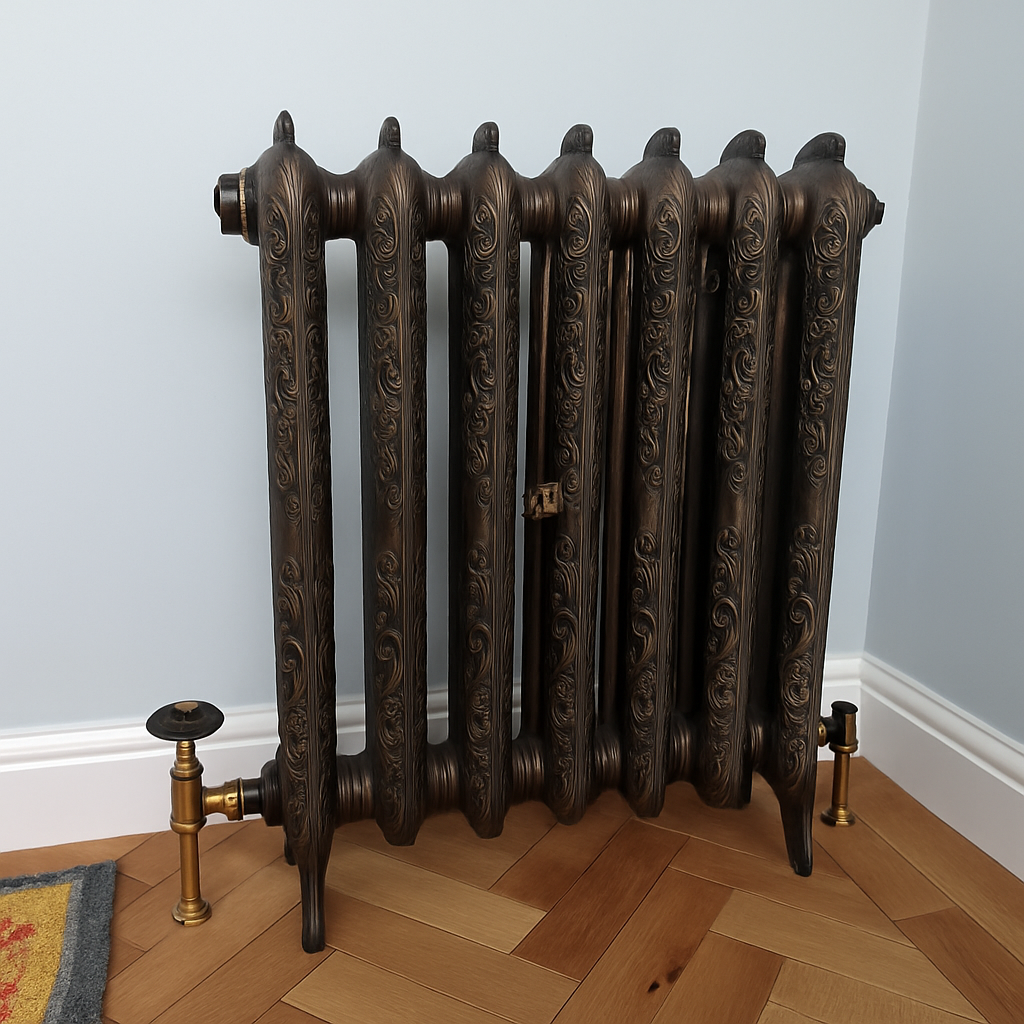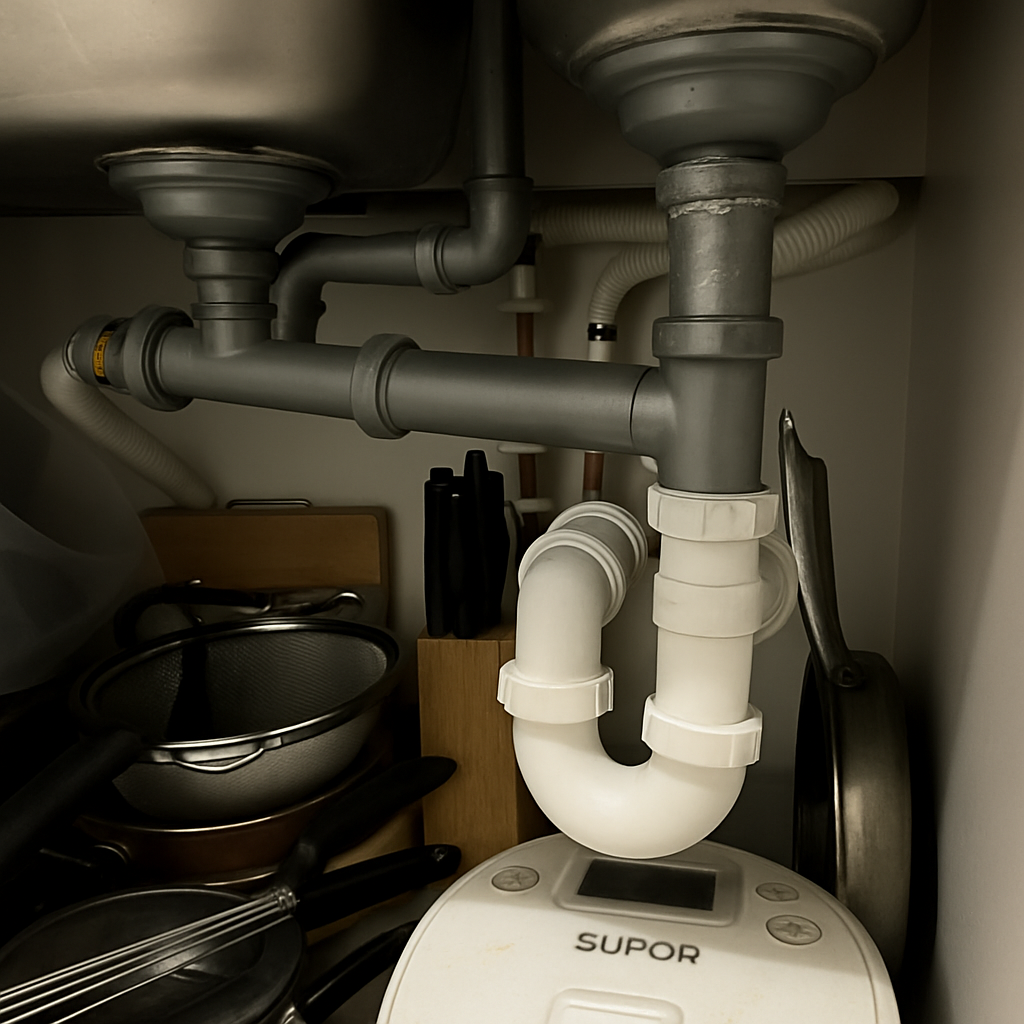Homeowners and landlords around Colchester tend to call when a boiler misbehaves at the worst moment. A January morning, frost on the windows, and the heating controls flashing a fault code you have never seen. I have stood in more than a few kitchens in Highwoods and Stanway at 7 a.m., listening to a boiler that tries to fire, fails, then sulks. The toughest question usually lands after the first fix attempt: do we keep repairing this, or is it time to replace?
The answer is not the same for every home. It depends on the boiler’s age and make, the nature of the fault, maintenance history, running costs, and how long you plan to stay in the property. What follows is a practical guide drawn from everyday callouts, system surveys, and plenty of coffee-fueled diagnostics around Colchester. It aims to help you weigh the trade-offs calmly, not just when the house is cold.
What a repair really means in practice
A repair is rarely just “swap a part”. It is an investigation, a risk judgment, and a conversation about money and disruption. When someone calls for boiler repair Colchester wide, the common triggers are loss of pressure, intermittent hot water, kettling noises, or repeated lockouts. Some of these point to small, well-defined issues. Others hint at systemic problems that have been building for years.
A worn electrode or a failed pressure sensor can be diagnosed and resolved in one visit if the boiler model is common and parts are on the van. A leaking plate heat exchanger, on the other hand, may look simple until you find scale throughout the domestic hot water circuit. Then the repair becomes twofold: swap the part, and correct the root cause so the new part does not fail prematurely.
In short, a repair is a technical fix plus a plan to prevent a repeat. If your engineer only quotes a part and labour number without context, ask what caused the failure and how to avoid it next season.

The age profile of boilers in Colchester
The housing stock around Colchester spans Victorian terraces, mid-century semis, and newer builds in developments like Mile End and Lexden. Boiler ages mirror that variety. I often see:
- Modern condensing combis between 2 and 8 years old, typically in flats and smaller houses. Mid-life system or regular boilers around 9 to 14 years old, often with hot water cylinders still going strong. Elder units older than 15 years, sometimes non-condensing, still chugging along with careful boiler servicing Colchester owners have stuck to.
Age matters not as a number, but for its relationship with efficiency, parts availability, and likely future repairs. After about 12 to 15 years, even well-maintained condensing boilers begin to suffer from heat exchanger corrosion, stuck diverter valves, or gas valve drift. Parts for popular models remain available for a while, but lead times stretch and prices creep. At that point you factor in both the immediate fix and next year’s probable spend.
Efficiency is a cost, not just a badge on the label
On paper, a modern condensing boiler runs above 90 percent efficiency. In real homes, the number depends on return water temperature, control strategy, and whether the system is balanced and clean. I have measured older non-condensing boilers around Colchester running at 70 to 78 percent on-site testing. That gap translates into gas use.
If your annual gas bill for space heating and hot water is roughly £1,200, moving from 75 percent to 90 percent seasonal efficiency trims around 17 percent of energy waste. The real saving, after control improvements, usually lands near £150 to £250 per year. Over a 10-year span, that offsets a decent share of a new boiler’s cost, especially if you were already facing a £600 to £900 repair.

This does not mean a replacement always wins. If your boiler is eight years old, otherwise reliable, and needs a £250 sensor plus a proper service, the efficiency gain alone rarely justifies a new install. But if the unit is 15 years old, needs a £700 main component, and has never been set up to condense properly, replacement becomes a financial decision rather than an emotional one.
Reading symptoms the right way
Not every noise or fault code means a death sentence. Certain patterns, though, are strong signals.
Persistent low pressure that returns within days often indicates a hidden leak on the system side or a failed expansion vessel. If the vessel can be recharged and holds, and no leaks show, you can get years more service. If the vessel is internal and inaccessible without major dismantling, and the boiler is already near end of life, think twice.

No hot water on a combi but heating still works usually points toward a diverter valve or plate heat exchanger. Both are routine jobs. If a plate exchanger is heavily scaled, look at your water hardness and ask about scale protection. Colchester and surrounding villages sit mostly in hard water territory. Scale is no surprise. Fit the remedy, not just the part.
Rumbling or kettling noises often reflect sludge or scale in the primary heat exchanger, or poor circulation due to a failing pump. A chemical clean or powerflush can help, assuming the system can tolerate it. If the boiler is old, flush cost plus a pump plus labour can balloon. That is when a replacement discussion starts to make sense, particularly if radiators are overdue for an upgrade too.
Frequent lockouts with combined ignition and flame sense faults can be simple, like a worn electrode, or complex, like gas valve calibration drifting after years of heat. If a Goldilocks mix of small fixes keeps it stable, great. If the engineer is changing major components every quarter, it is time to stop pouring money into a slow decline.
Parts and availability in real time
When you call for boiler repair Colchester engineers know which models have reliable parts supply. Worcester Bosch, Vaillant, Ideal, and Baxi units fare well for a decade or more, though specific sub-models can be tricky. Obscure brands or rebadged imports make repairs slower and pricier due to shipping delays.
Parts availability directly impacts your decision to repair versus replace. A £180 gas valve available tomorrow is one thing. The same valve at £330 and a week’s wait in February is another, especially for families with young children or elderly occupants. Temporary electric heaters buy time, but they are expensive to run and never feel like central heating.
The value of proper diagnostics
Rushed diagnostics lead to mis-spends. The most efficient callouts follow a simple, thorough workflow. Visual inspection, system pressure and vessel check, condensate route confirmation, flue and combustion analysis with a calibrated analyser, electrical testing on suspect components, then a controlled test fire. Two extra measurements that often make or break the case are gas inlet pressure under load and temperature differential across the primary circuit.
Skipping these steps can turn a £120 sensor fix into a £600 saga. Good engineers put the analyser probe in, measure return temperatures, and look for data that explains symptoms. If your appointment for boiler servicing Colchester wide feels like a box tick, ask for measurements and results, not just a stamp.
Hidden culprits: water quality and controls
Many boilers that “just keep failing” are fine machines in bad environments. Acidic system water, oxygen ingress through old plastic pipe, and magnetic sludge send pumps and heat exchangers to early retirement. Controls matter too. An always-on boiler cycling for short calls wears itself down, and poor weather compensation means higher return temperatures that prevent condensing.
A system filter, regular inhibitor top-ups, and a quick annual check on pH and corrosion levels cost very little compared with major repairs. Likewise, swapping a dated wall thermostat for a load-compensating control can drop flow temperatures into the condensing sweet spot without sacrificing comfort. These are not headline items, but they extend boiler life and improve efficiency day after day.
Money on the table: repair, replace, or stage the work
People ask for a rule of thumb. Here is one I use privately: if a repair costs more than 30 percent of a like-for-like replacement and the boiler is past year 10, I pause. It is not an automatic no, but it triggers a replacement conversation. Below that figure, I check the maintenance history and water quality before green-lighting the repair.
How you plan to use the home matters just as much. If you are selling within a year and the boiler can be made safe and reliable with a modest repair, do it, keep receipts, and move on. If you plan to stay five or more years, and comfort or flow rate has been a sore point, a well-chosen new boiler provides value beyond energy savings.
Sometimes the right approach is staged. Replace a failing boiler now, but retain a sound unvented cylinder and update radiators later. Or, invest in a deep clean and filter today, then push replacement two winters down the road when budgets are friendlier. A good engineer will lay out these routes, with costs and the likely lifespan they buy you.
What a quality replacement looks like
Replacement is not just a shiny new box. It is matching the heat load to the property, designing for low return temperatures, and building a quiet, reliable system. That means a heat loss calculation, not a guess based on the old boiler output. For many Colchester semis with decent insulation, a 15 to 18 kW combi is plenty. Oversizing leads to short cycling, noise, and poor efficiency.
The install should include a system cleanse appropriate to the pipework’s condition, a magnetic filter on the return, correct inhibitor dosing, and a benchmarked combustion setup recorded on the paperwork. If you are quoted for less, you are being sold a swap, not a system. The difference shows up a year later when the filter is clean and the boiler condenses happily at 55 degrees flow on a mild day.
Warranties vary. Ten-year warranties are common on reputable brands when installed by accredited engineers and with documented annual service. Read the conditions. Most require boiler service Colchester locals schedule every 12 months, with records kept. Miss a service and you invite warranty wriggle room.
Safety and compliance are non-negotiable
Any repair or replacement must be carried out by a Gas Safe registered engineer. Ask for the card, check the categories on it, and do not be shy. Combustion appliances demand respect. Flue integrity, adequate ventilation where needed, and correct condensate routing are as important as the boiler itself. I have seen condensate pipes formed with upward dips that freeze and back up at the first frost. That is a guaranteed no-heat day.
If you are a landlord, annual safety checks are mandatory, and documentation must be provided to tenants. A proper service, rather than a quick safety check, dramatically reduces midwinter callouts. Tenants appreciate reliable heat. You appreciate not scrambling for emergency appointments.
Real numbers from everyday jobs
A typical single-fault repair for a modern combi, like a diverter valve service kit or a pressure sensor, often lands between £150 and £300 including labour. A plate heat exchanger change might be £250 to £450 depending on access. A main heat exchanger replacement, if parts are available, can range from £500 to £900 and typically turns into an all-day job.
A well-specified replacement combi from a major brand, installed correctly with filter, system clean, and controls, tends to fall between £2,200 and £3,200 in the Colchester area, varying with flue runs, access, and extras like a new condensate route. System and regular boiler replacements with cylinders can reach £3,000 to £5,000, again depending on scope. These ranges are defensible based on current parts and labour rates, but every house is different. If a price seems far outside these bounds, ask why.
Edge cases worth understanding
Boilers in lofts: fine when boarded and with proper lighting and access. If your boiler is in a cramped loft without safe access, many engineers will not service it properly. A relocation may sound expensive but often pays off in future serviceability and safety.
Large households with combis: two showers at once will test any combi under 30 kW, especially with Colchester’s cold mains in winter. If hot water performance drives half your callouts, a system boiler with a cylinder may solve the root cause better than another combi.
Underfloor heating with old boilers: the low-temperature nature of underfloor pairs beautifully with condensing boilers. If you have UFH and an old non-condensing unit, your efficiency upside on replacement is bigger than average, especially with good weather compensation.
Holiday lets and student HMOs: downtime costs more than the repair bill. Favour models with rapid parts availability and consider holding a few common spares on-site, like washers, a PRV cartridge, or a condensate trap, if your engineer agrees and can guide you.
The role of an annual service that actually prevents problems
People confuse a certificate with a service. A proper annual service includes stripping and cleaning the burner where appropriate, checking and cleaning the condensate trap, verifying expansion vessel charge, inspecting electrodes, testing click here gas tightness, running a full combustion analysis, and recording results. It is not a 15-minute glance.
Regular boiler servicing Colchester homeowners commit to reduces emergency calls and extends boiler life in a way that shows up in your wallet. Catch a weeping auto air vent before it becomes a sludge-maker. Top up inhibitor when it is 70 percent gone, not after pinholes appear in radiators. These quiet wins keep your boiler in the repairable zone longer.
A practical decision path you can use
When your boiler fails, you want a clear path, not jargon. Use this compact framework to decide without fuss.
- Identify age, model, and service history. If it is under 10 years with a consistent service record, the default is repair. Get a thorough diagnosis with measured data. Ask for the probable root cause and how to prevent recurrence. Compare repair cost to replacement as a ratio, and consider the next two likely repairs based on the engineer’s experience with that model. Factor in hot water needs, future plans for the property, and expected gas savings from a right-sized replacement. Weigh disruption and timing. A two-day replacement in summer beats a rushed job in a cold snap.
If you stick to those steps, snap decisions feel less risky. You will see the pattern the engineer sees.
Scenarios from local callouts
A Victorian terrace off North Station Road, combi at 13 years, intermittent hot water, heating fine. Diagnosis showed a scaled plate heat exchanger and a tired diverter motor. The water here tested very hard, and the home had no scale protection. We fitted a new plate, refreshed the diverter, added a scale reducer, and performed a proper service. Cost landed around a third of a new boiler. The client planned to move within two years, so repair won.
A 1990s semi in Prettygate with a 16-year-old system boiler and an unvented cylinder. Repeated lockouts and noisy circulation. Pump amperage was high, water was black with magnetite, and the primary heat exchanger was partially blocked. The quote to replace the pump, deep clean, and roll the dice on a fragile exchanger was over £900. We agreed on a new system boiler, full clean, magnetic filter, and controls upgrade to weather compensation. Gas bills dropped by roughly 20 percent over the next year based on their meter readings.
A new-build flat in Hythe with a five-year-old combi, no heat, error for low pressure. The expansion vessel had lost charge. A quick recharge held for the season, but we scheduled a follow-up service and found an undersized condensate run up a cold exterior wall. We rerouted it internally to eliminate winter freeze-ups. Two modest visits, and no further callouts that winter.
When urgent repair makes sense despite age
There are moments where a short, tactical repair is the right move even if the boiler is old. If you have a vulnerable occupant, a short cold spell, and a clearly defined fix that restores safe operation quickly, go ahead. Then plan the replacement on your terms, in fair weather, with time to compare quotes and choose the right system. Being pragmatic beats perfection when the house is cold.
Final thoughts from the service van
A boiler is both appliance and system. The box on the wall gets the attention, but the pipework, water quality, and controls either set it up for a long, quiet life or nudge it toward constant fiddling. The repair versus replace decision sits at that intersection: what is the fault, what is the environment, and what are your goals for comfort, costs, and the property?
Colchester offers the full mix of housing and water conditions, which means blanket advice fails quickly. If you invest in rigorous diagnostics, sensible maintenance, and system thinking, you will make the right call more often than not. And if you need help, look for boiler service Colchester providers who discuss cause as much as cure, and show their measurements as readily as their price. That combination builds warm homes and fewer surprises, winter after winter.